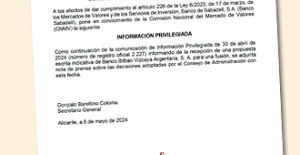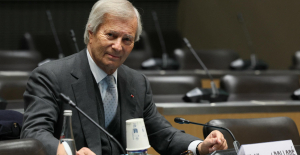On Sunday, Antony Blinken, the U.S. Secretary Of State, and Yair Lapid, Israel's Foreign Minister will meet in Rome. Their new governments are looking to end the feud with former President Donald Trump (and former Prime Minister Benjamin Netanyahu), whose close alliance exacerbated partisan divisions between both countries.
With Trump in Florida being sidelined and Netanyahu leading the opposition, President Joe Biden, Prime Minister Naftali Bennet, and other leaders are focusing on pragmatic diplomacy and not dramatic initiatives that could foment opposition at home or distract from other priorities.
This means that smaller accomplishments are important, such as the securing of the informal ceasefire that ended Gaza's war against Hamas rulers last month and replenishing Israel’s Iron Dome defense system. The delicate balance could be upset by a major push to revive long-dormant peace talks between Israel and Palestinians.
"Nobody believes it's a good idea for us to begin charging forward on a major, new peace initiative," stated Ilan Goldenberg of the Center for a New American Security. He is a Mideast security expert. There are ways you can improve the situation quietly, under radar.
This approach, which focuses on managing the conflict instead of trying to solve it, may be able to bridge domestic divisions. It also perpetuates a status quo, which the Palestinians find increasingly oppressive as well as hopeless, and has led to countless unrest cycles.
American and Israeli diplomats will attempt to resolve differences without the public's knowledge, just as Biden's quiet diplomacy when he privately asked Netanyahu to end the Israel-Hamas conflict before a truce which took effect May 21.
"They know that you can have an open battle or manage it behind closed doors to try and move the policy," stated Mark Mellman, a U.S. Democratic pollster who was a consultant for Lapid's campaigns.
Both governments will work together to protect Israel's fragile governing coalition. This includes reducing the provocations that led to the 11-day war in Gaza that resulted in at least 254 Palestinian deaths and 13 Israeli deaths.
The coalition that formed in Israel today shares little other than the conviction that Netanyahu must go. It is composed of eight parties each with veto power over decisions. Israel's government is at risk of falling apart if one party does not stand, and Netanyahu will be waiting on the other sidelines.
In the short-term, Lapid, a centrist will serve as Israel's point person on repairs to the damaged relationship with Biden, and the Democrats. Although the party controls both the Houses of Congress, it is becoming more divided over the Mideast conflict. Progressive members are calling for greater pressure from the U.S.
Michael Oren, a former Israeli ambassador to America under Netanyahu, stated that "what they're building now" is mutual trust. "I expect a change in tone, rather than substance... but it's possible that it could produce something more for Israel."
Talks in Vienna to revive the 2015 Iran-World Powers Agreement to Limit Tehran's Nuclear Weapons Development are top of the agenda. Trump, supported by Netanyahu, pulled the U.S. from the agreement in 2018 and imposed sanctions against the Islamic Republic. Biden pledged to expand and restore the agreement.
Even though Israel is opposed to any new agreement, the new Israeli government appears determined to try to influence the negotiations rather than to stop them. Many Democrats were furious when Netanyahu condemned the "very poor deal" in front of a joint session Congress in 2015.
His defiance of Obama's administration and his close ties with Trump were widely viewed as having undermined traditional bipartisan U.S. support. While Israelis were open to Trump's diplomatic gifts over the years to Netanyahu, suspicions arose that he was trying keep Netanyahu in power through deadlocked elections or an ongoing corruption trial.
Contrary to Netanyahu's approach in the Obama era, Lapid announced recently that he and Blinken had reached an "no surprises" agreement to maintain open communication. They are expected to discuss this issue in Rome on Sunday.
Bennett, a right-leaning politician who ideologically aligns with Netanyahu's hawkish views, has toned down his rhetoric about Iran.
Bennett stated Thursday that he would continue to consult with his friends, persuade and discuss, and share information, insights, out of mutual respect. Bennett said Thursday that we would be responsible for our fate and not anyone else.
Officials stated that reducing tensions or at the very least not inflaming them is a key strategy. Bennett, for example, is a religious nationalist and supports settlement expansion in the occupied West Bank. He could lose his job if his dovish coalition partner is not supportive.
Officials believe there will be limited settlement growth beyond what is called "natural growth". But, that's a loosely defined term that could allow substantial construction.
Israeli media reported that the Defense Ministry developed plans last week for 31 settlement construction projects, including a shopping centre and special needs school.
The Biden administration in the U.S. has made it clear that it wants to free the country from the Middle East conflict and instead focus on other issues, like climate change and competition against China.
Biden invited outgoing Israeli President Reuven Nirlin to Washington on Monday. A group of House Democrats is planning a trip to Israel for the July 4th recess.
Officials said that there is talk of Bennett and Lapid traveling together to Washington in the summer. Bennett will be the prime minister for the first two-years, with Lapid, who is the architect of the coalition, following.
All officials spoke under the condition of anonymity in order to discuss logistics and administration plans, which are still being finalized.
The reset appears to be working so far. However, the Israeli coalition is only two weeks old and significant challenges lie ahead.
Biden is now trying to reverse Trump's policies of alienating the Palestinians. The administration has stated that Israelis and Palestinians should have equal security and prosperity.
The U.S. has not yet explained how it will do that without Israel's 50-year-old military occupation of West Bank, its blockade of Gaza-ruled Hamas and discriminatory policies that were a catalyst for unrest.
For Israel, peace negotiations with the Democrats seem to be the most pressing priority.
Lapid stated that "they are angry" as he assumed the leadership of Israel's foreign minister. "We must change how we interact with them."

 Sabadell rejects the merger with BBVA and will fight to remain alone
Sabadell rejects the merger with BBVA and will fight to remain alone In Germany, the far left wants to cap the price of “doner kebabs”
In Germany, the far left wants to cap the price of “doner kebabs” Israel-Hamas war: Gaza between hope of truce and fear of Israeli offensive in the South
Israel-Hamas war: Gaza between hope of truce and fear of Israeli offensive in the South “Mom, Dad, please don’t die”: in the United States, a nine-year-old child saves the lives of his parents injured in a tornado
“Mom, Dad, please don’t die”: in the United States, a nine-year-old child saves the lives of his parents injured in a tornado The presence of blood in the urine, a warning sign of bladder cancer
The presence of blood in the urine, a warning sign of bladder cancer A baby whose mother smoked during pregnancy will age more quickly
A baby whose mother smoked during pregnancy will age more quickly The euro zone economy grows in April at its best pace in almost a year but inflationary pressure increases
The euro zone economy grows in April at its best pace in almost a year but inflationary pressure increases Children born thanks to PMA do not have more cancers than others
Children born thanks to PMA do not have more cancers than others “House of the Dragon”, “Succession”… Max, the new streaming platform from HBO and Discovery, launched in France on June 11
“House of the Dragon”, “Succession”… Max, the new streaming platform from HBO and Discovery, launched in France on June 11 The A13 motorway will finally reopen this Friday, in one direction only
The A13 motorway will finally reopen this Friday, in one direction only TNT commission of inquiry: tensions between LFI deputies and Macronists before the vote on the report
TNT commission of inquiry: tensions between LFI deputies and Macronists before the vote on the report Apple unveils a new, more efficient iPad range
Apple unveils a new, more efficient iPad range The Gaza War invites itself to the 2024 Pulitzer Prizes
The Gaza War invites itself to the 2024 Pulitzer Prizes Judith Godrèche presents a short film on sexual violence in Cannes
Judith Godrèche presents a short film on sexual violence in Cannes Kevin Spacey: new trial in sight in London for the American actor, for sexual assault
Kevin Spacey: new trial in sight in London for the American actor, for sexual assault Taylor Swift fans make London pub Black Dog their new place of pilgrimage
Taylor Swift fans make London pub Black Dog their new place of pilgrimage Omoda 7, another Chinese car that could be manufactured in Spain
Omoda 7, another Chinese car that could be manufactured in Spain BYD chooses CA Auto Bank as financial partner in Spain
BYD chooses CA Auto Bank as financial partner in Spain Tesla and Baidu sign key agreement to boost development of autonomous driving
Tesla and Baidu sign key agreement to boost development of autonomous driving Skoda Kodiaq 2024: a 'beast' plug-in hybrid SUV
Skoda Kodiaq 2024: a 'beast' plug-in hybrid SUV The home mortgage firm rises 3.8% in February and the average interest moderates to 3.33%
The home mortgage firm rises 3.8% in February and the average interest moderates to 3.33% This is how housing prices have changed in Spain in the last decade
This is how housing prices have changed in Spain in the last decade The home mortgage firm drops 10% in January and interest soars to 3.46%
The home mortgage firm drops 10% in January and interest soars to 3.46% The jewel of the Rocío de Nagüeles urbanization: a dream villa in Marbella
The jewel of the Rocío de Nagüeles urbanization: a dream villa in Marbella Institutions: senators want to restore the accumulation of mandates and put an end to the automatic presence of ex-presidents on the Constitutional Council
Institutions: senators want to restore the accumulation of mandates and put an end to the automatic presence of ex-presidents on the Constitutional Council Europeans: David Lisnard expresses his “essential and vital” support for François-Xavier Bellamy
Europeans: David Lisnard expresses his “essential and vital” support for François-Xavier Bellamy Facing Jordan Bardella, the popularity match turns to Gabriel Attal’s advantage
Facing Jordan Bardella, the popularity match turns to Gabriel Attal’s advantage Europeans: a senior official on the National Rally list
Europeans: a senior official on the National Rally list These French cities that will boycott the World Cup in Qatar
These French cities that will boycott the World Cup in Qatar “The future is for us”: “disappointed” and “proud” at the same time, Al-Khelaïfi sees the glass half full after the elimination of PSG
“The future is for us”: “disappointed” and “proud” at the same time, Al-Khelaïfi sees the glass half full after the elimination of PSG PSG: “Since January, these have not been my best matches,” agrees Zaire-Emery, who promises to “come back stronger”
PSG: “Since January, these have not been my best matches,” agrees Zaire-Emery, who promises to “come back stronger” “What is this question, honestly?” : Nasser Al-Khelaïfi (very) annoyed after PSG-Dortmund
“What is this question, honestly?” : Nasser Al-Khelaïfi (very) annoyed after PSG-Dortmund “I am the guy who has to score the goals”: Mbappé does not hide and assumes responsibility after PSG’s exit
“I am the guy who has to score the goals”: Mbappé does not hide and assumes responsibility after PSG’s exit


















